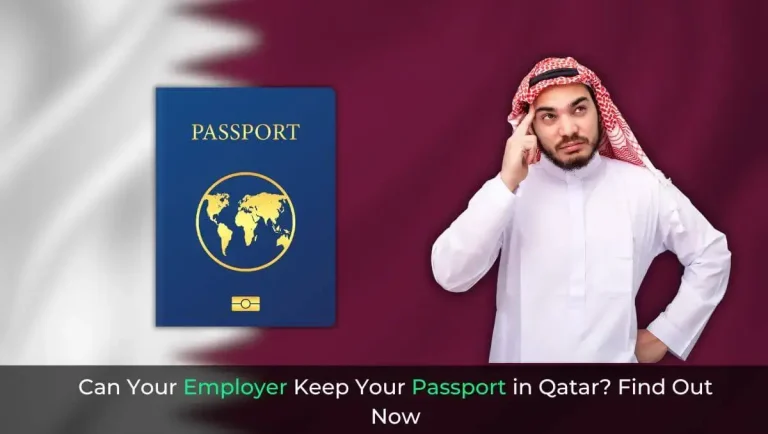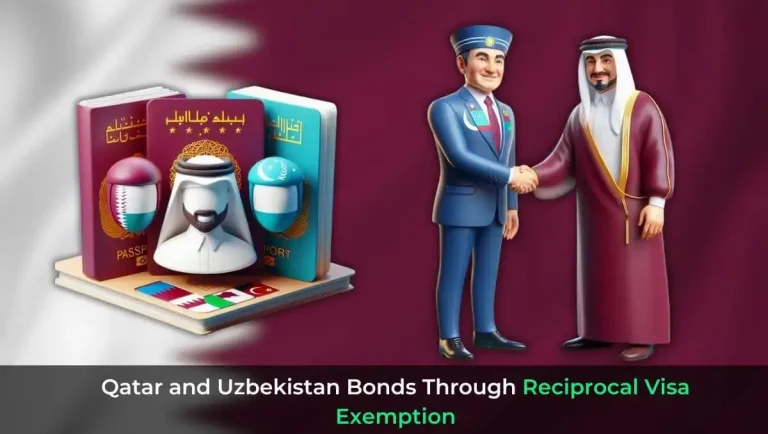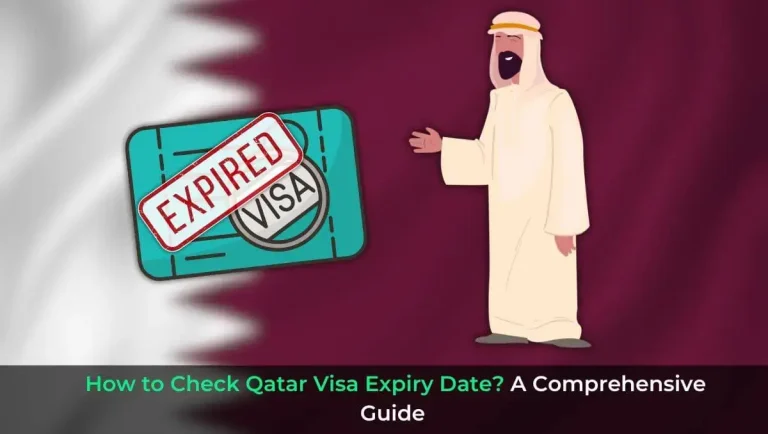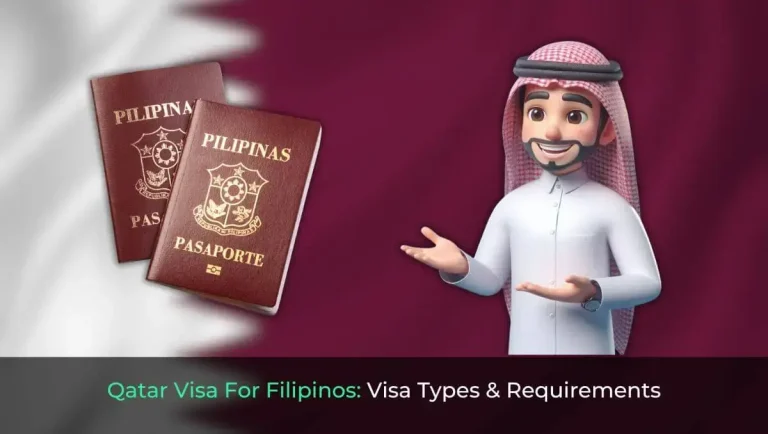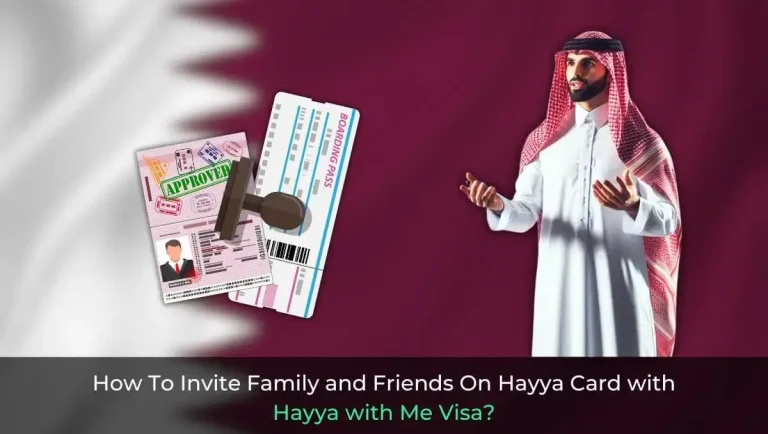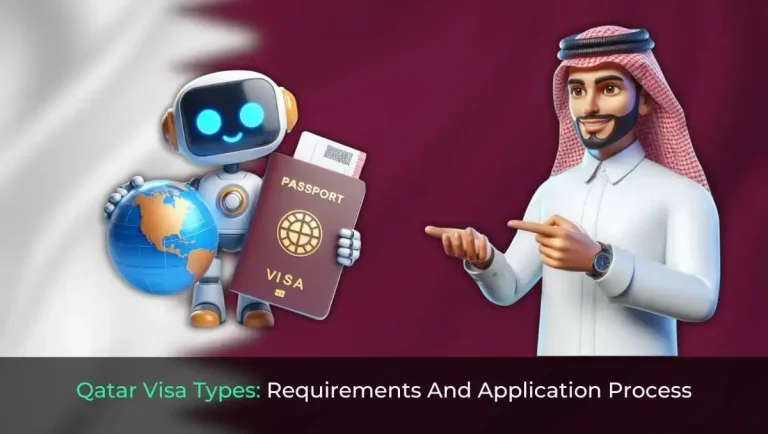Qatar Family Residence Visa: A Complete Guide for Expats
Choosing to relocate with family to Qatar is an important decision. You may feel overwhelmed when navigating the intricate Qatar Family Residence Visa procedures. There’s no need to worry, this guide will walk you through every step of securing family residence visas legally and smoothly.
With Qatar Visa Check, you can verify your visa status.
Understanding Qatar’s Family Visa Options
In order to understand the nuances of Qatar’s family visas, let’s first grasp their fundamentals:
Family Residence Visa
Family Residence Visas are ideal for those seeking to settle in Qatar permanently with their families. In accordance with the sponsor’s employment contract and residence status, sponsored relatives can stay in the nation for up to two years.
Family Visit Visa
Family Visit Visas allow close relatives of expatriate residents to visit for up to six months during short-term stays. The temporary arrangement caters to those wishing to visit their loved ones in Qatar for a short period.
Additionally, also have a look at Qatar and Philippines Sign Visa Waiver Deal.
Eligibility Criteria for Qatar Family Residence Visa
In order to ensure a harmonious family relocation, both the expatriate sponsor and the accompanying relatives need to meet certain eligibility requirements for Qatar Family Residence Visa. The following are essential prerequisites:
Sponsor Eligibility
In order to facilitate the family’s transition, the expatriate sponsor must:
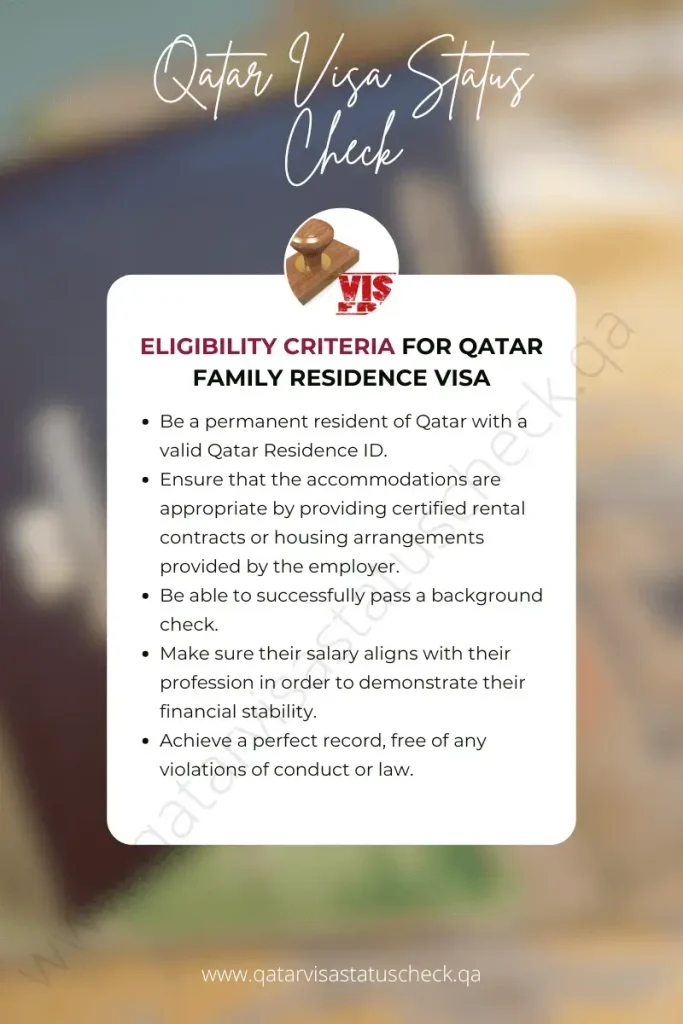
Dependent Eligibility
Additionally, relatives seeking to join their sponsor must provide legally attested documents proving their relationship, including:
Exceptions may apply, such as securing special permission for married daughters or sons who are older than 21. In addition, all applicants must undergo medical clearance in order to comply with Qatar’s public health standards for the Qatar Family Residence Visa.
In case, you’re expecting a baby in Qatar, you might want to explore how you can get Residence Permit for a Baby in Qatar.
Navigating Qatar Family Residence Visa Process: A Step-by-Step Guide
Now that the groundwork has been laid, let’s take a look at the intricate application process itself, a meticulous journey divided into four distinct stages:
Stage 1: Entry Permit Acquisition
The first step is to obtain an entry permit, which grants relatives pre-approved access to Qatar. Documents that sponsors must compile include:
Clarity and accuracy are paramount. To obtain certified English-Arabic versions of all forms and supporting documentation, engage professional translation services.
Stage 2: Medical Examination
At the Qatar Medical Commission clinics, all applicants must undergo mandatory medical screening upon arrival. A comprehensive evaluation aims to detect and prevent infectious diseases, upholding stringent public health standards.
A valid payment method, original, and copies of the applicant’s passports, as well as the sponsor’s Qatar ID, should be brought to the interview. It is possible for minors to be exempt from vaccinations in some instances, even with vaccination records.
Stage 3: Biometric Registration
During the third phase, biometric registration will be conducted at designated Ministry of Interior branches. A secure identification database is created through this intricate process, which captures fingerprints and, in some cases, iris scans.
A passport, medical clearance certificate of Qatar Visa Medical Test, visa copy, and Qatar ID of the sponsor are all required. In order to complete the Arabic-language fingerprinting application forms correctly, it is crucial to pay meticulous attention to detail.
Stage 4: Qatar ID Card Issuance
Finally, the Qatar ID Card is obtained, proving one’s legal residency. There are two options for applicants: in-person visits to Ministry of Interior centers or the Metrash2 app, which provides convenient online access.
In-person applications require original documents, passport photographs, and meticulously typed application forms. On the other hand, the Metrash2 app simplifies the process by allowing the uploading of scanned documents and digital photographs.
The Qatar ID card grants applicants the same rights and privileges as legal residents, including access to public amenities, multi-entry travel, and sponsorship of additional visas. You can explore the Qatar Visa Print to print your visa.
Essential Documents for Qatar Family Residence Visa
In order to apply for a family visa successfully, you need to prepare thoroughly. An applicant must gather a vast array of documents that must all be attested and translated:
Certification by home country embassies in Qatar, Qatar’s embassies abroad, the Qatar Ministry of Foreign Affairs, and relevant administrative agencies may be required as part of the attestation process. Arabic translations by approved translators of all forms, letters, and statements are equally important.
In case, you’re planning to leave Qatar, you must apply for the Qatar Visa Cancellation.
Qatar’s Stringent Medical Screening
Qatari authorities are committed to maintaining public health standards. Under the Ministry of Public Health (MoPH), all family visa applicants must undergo a rigorous medical examination.
At designated clinics nationwide, these exams serve multiple purposes:
Qatar Visa Medical Examinations include comprehensive tests, including:
Upon successful completion of all tests, doctors input findings directly into visa databases, generating clearance certificates. Minors below 12 years old may qualify for exemptions, and vaccination histories can speed up the process.
If you’re living in UAE, you can apply for the Qatar Visa for UAE Residents.
Biometric Registration
The process of acquiring a Qatar Family Residence Visa requires biometric registration in accordance with stringent immigration protocols. Essentially, fingerprints and, in some cases, iris scans are collected as unique physical identifiers.
Visitors must present original documentation such as passports, medical certificates, visa copies, and the sponsor’s Qatar ID at designated Ministry of Interior (MOI) service centers. Application forms for standard fingerprinting must be accurately filled out in Arabic to avoid delays.
Using state-of-the-art scanners, fingerprints, and iris scans are captured at high resolution, encrypted, and stored in secure databases. A cross-reference of these biometric records with global watchlists allows Qatar’s security services to:
Qatar’s biometric registration process ensures the integrity and accessibility of applicant information through robust data redundancy and backup systems. You can also explore different ways to travel to Qatar.
Qatar ID Card: Your Key to Residency
Qatar ID Cards are handed out to applicants upon successful completion of all preceding stages of Qatar Family Residence Visa. Government-issued, laminated cards display vital information, such as:
Qatar ID Cards entitle holders to a number of rights and privileges, including:
Nevertheless, these cards must be renewed annually in order to maintain the holder’s residential status. Penalties and potential cancellation of residency permits can result from failing to renew on time.
Qatar ID Cards can be replaced if they are lost, stolen, damaged, or contain errors due to unforeseen circumstances. To obtain replacement Qatar ID Cards, residents must submit requests along with supporting documentation, such as police reports and accident reports.
Financial Considerations: Budgeting for Family Relocation
Despite the appeal of reuniting with loved ones in Qatar, financial considerations must be taken into account. The following factors should be considered when budgeting for indirect expenses and direct processing fees of Qatar Family Residence Visa:
Normal Processing Fees
Expedited Processing Options
Additional fees apply for expedited services:
Penalties and Fines
Significant penalties can result from delays or infractions, such as:
Indirect Expenses
Aside from the official processing fees, applicants should account for the following auxiliary costs:
It is essential to plan your family’s relocation to Qatar thoroughly, considering both direct and indirect costs.
FAQs
Wrapping Up
Qatar family residence visa system demonstrates the nation’s commitment to facilitating seamless relocation for expatriates and their families. Although the process may seem complicated, with its extensive requirements and stringent scrutiny, it ensures only deserving cases are approved.
A meticulous preparation of paperwork, patient follow-up, and adherence to guidelines are essentials for expatriate sponsors. Visitor relatives must also observe Qatar’s customs and regulations and conduct themselves lawfully.
Through its family visa system, Qatar balances operational efficiency with regulatory oversight as global mobility increases. Metrash’s online application experience has revolutionized the application process, while in-person verification maintains the authenticity and security of the application.
Qatar’s family residence visas enable expats to stay together with their families, fostering an inclusive and diverse society that embraces a diverse mix of cultures.

